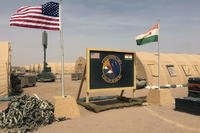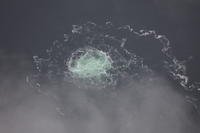During his tenure as under secretary for health at the Department of Veterans Affairs and later as VA secretary, Dr. David Shulkin spent about a weekend a month wearing a white coat and treating patients at the VA medical center in Manhattan.
So when the VA issued a call March 25 asking retired VA doctors, nurses, pharmacists, respiratory therapists and other health care professionals to return to bolster the department's response to the COVID-19 pandemic, Shulkin, a board-certified internist, responded.
"My heart and gratitude goes out to the men and women working in the VA system," Shulkin said April 15. "I know, because I worked alongside them, how incredibly dedicated they are."
Shulkin told Military.com that while he is extremely busy running a health care consulting firm and advising health systems and local governments on their pandemic response, he would gladly return to VA to work alongside his former colleagues treating veterans in their fight against the illness.
"I'm incredibly proud of the work [VA employees] are doing despite the fact that they're putting themselves and their families at potential harm to serve their country and serve our veterans," Shulkin said.
The federal Office of Personnel Management on March 19 approved a request from VA to allow the department to rehire retired workers. VA is specifically looking for health care providers with experience in direct patient care, telehealth and the traveling nurse corps.
Related: Wilkie Rejects Claim that VA Staff Lack Protective Equipment Amid Virus Outbreak
While Department of Veterans Affairs spokeswoman Christina Noel did not say how many former VA health care workers responded to the call, she said since March 29, VA has brought back 42 retired medical personnel, including 23 registered nurses, five physicians, five human resources specialists, two food service workers, a physician assistant, a practical nurse and several other support services employees.
These workers are in addition to the 3,183 new staff members hired by VA between March 29 and April 11, including 981 registered nurses. According to Noel, VA now has 390,000 employees, a "record high and nearly 55,000 more than we had five years ago," she said.
VA Secretary Robert Wilkie told Military.com April 15 that the department was able to fast-track hiring because it has "thrown away the playbook that the Office of Personnel and Management has used since the late 1800s."
"In the last two weeks, because we've gone to emergency stations, we've hired," Wilkie said.
Before the pandemic began, VA had 44,000 vacancies and had come under fire for failing to address its staffing shortages.
Since COVID-19 began spreading throughout VA facilities across the U.S., unions representing VA employees have charged that the vacancies have put workers at increased risk for contracting the coronavirus, because many frontline employees are working long shifts and handling larger-than-normal patient loads.
The American Federation of Government Employees on April 7 filed a complaint with the Occupational Safety and Health Administration also charging that VA failed to provide adequate personal protective equipment for its employees.
As of April 23, 1,937 VA employees had confirmed cases of COVID-19 and 20 had died. VA officials noted that the infection rate of less than 1% is lower than seen in the Henry Ford Health System, a non-profit system in the Detroit area with 31,600 employees that has 700 confirmed cases among its staff, or 2.2% of its workforce.
As of Tuesday, 7,342 veterans have been diagnosed within the VA health system with the coronavirus and 457 have died. The figures don't include veterans diagnosed or hospitalized in civilian facilities or those residing in state-run veterans homes or non-VA nursing homes.
Shulkin, who was fired as secretary in March 2018 by President Donald Trump, said the staffing shortages may be "part of the reason VA employees are putting themselves at greater risk and getting infected because they are simply being asked to perform in an extraordinarily stressful environment."
So he submitted his information via the VA's registration process.
"I'm sure thousands of other people around the country are doing that. VA is taking steps to try to help alleviate these staffing shortages and it's a critical thing to focus on," Shulkin said.
As of April 23, he hadn't heard back.
Patricia Kime can be reached at Patricia.Kime@Monster.com. Follow her on Twitter @patriciakime.
Read More: VA Needs to Do More to Protect Medical Staff, Former Secretary Says












